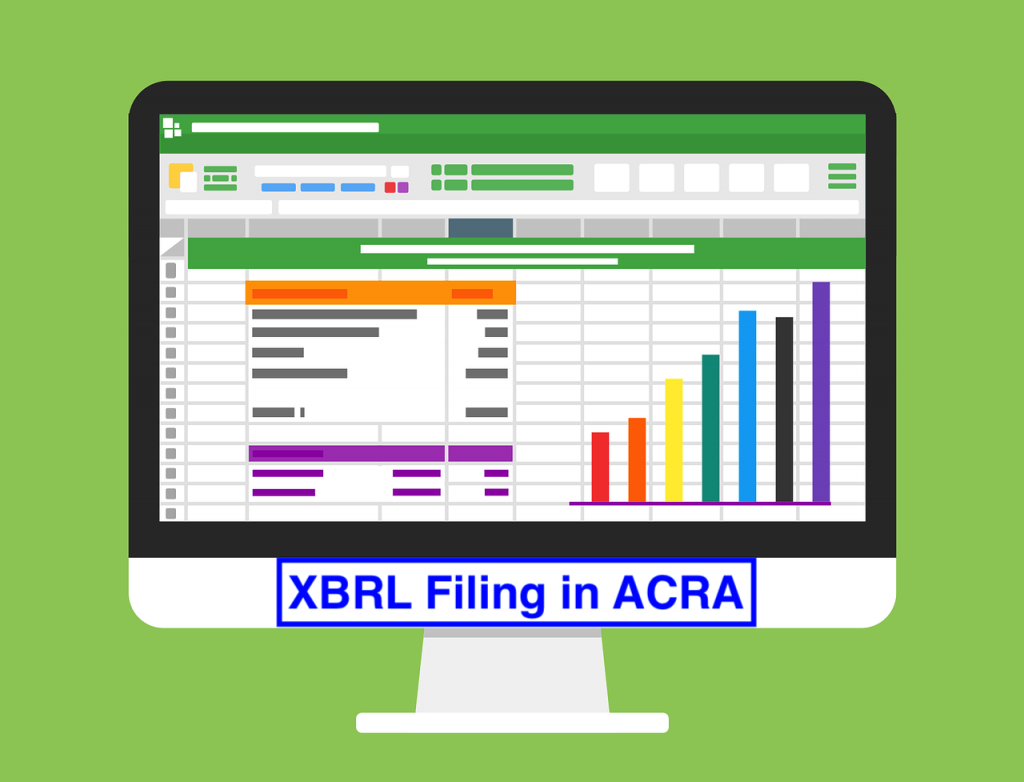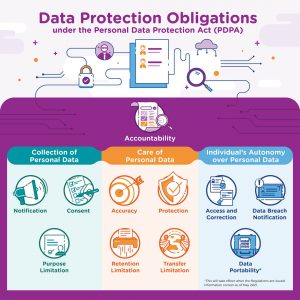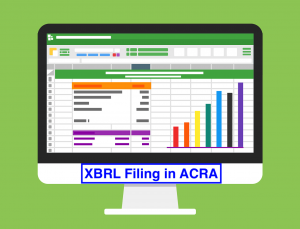A common requirement faced by Singapore-registered companies is the need to file financial statements highlights or do annual returns Filing in XBRL format. However, some companies are required to file only Financial Statement Highlights (FSH), whereas others must file a “full set of financial statements in XBRL format”; and then some companies are not required to do it at all. So what does it all mean? Here’s some clarification:

Why is “Filing in XBRL” format required anyway?
Extensible Business Reporting Language (XBRL) is a specific way to present financial information, that’s recognised on an international level.
For example, businesses in Japan, India, the UK, and the US all commonly use XBRL; once you’re familiar with the language, you can easily read financial reports from companies in all those countries.
XBRL is also important for digital reasons – when all information is standardised in XBRL, it’s possible for different types of accounting software to interpret the data. For example, if your business uses financial statements in XBRL, then an accountant doesn’t need to translate it for your bank’s computers – the information can be directly uploaded to your bank, even if you use different accounting software from them.
What is a “full set of financial statements”, versus FSH?
FSH consists of about 50 data elements, to provide a snapshot of your business situation (these are the elements you commonly see in prospectuses and reports, such as your balance sheet, revenue, liabilities, and so forth).
Note that FSH must also be in XBRL format. Because FSH presents only the most salient information regarding your business, it tends to be shorter and quicker to compile. You can even prepare them online with ACRA, or use third party accounting software that’s XBRL-compliant.
The full set of financial statements is more comprehensive. If you want to see the information that must be provided, you can view it on this spreadsheet. As a full set of financial statements is more comprehensive, you should also be prepared to handle needs like mapping information to ACRA’s taxonomy (to put it simply, you need to translate the financial data points into the same terms used by ACRA).
If you need help with either requirement, contact us and we’ll help you through the process.
Who is required to file financial statements, and who only needs to file SSH?
First off, if your business is a sole proprietorship, partnership, or limited partnership, you’re not required to file financial statements. You can more or less skip this article. If you are a solvent Exempt Private Company (EPC), you don’t have to file financial statements, but ACRA encourages you to.
(There can be other advantages to filing financial statements for EPCs, such as making it easier to get a loan, or looking more reputable).
If you’re not sure what sort of company you are, contact us for help and we can guide you. Otherwise, the requirements are as follows:
Businesses that must file a full set of financial statements:
- Public / private companies, except specific companies regulated by MAS, or companies with special permission to use accounting standards other than SFRS, SFRS for Small Entities, and IFRS.
- Insolvent EPCs; you can either file a full set of financial statements, or file FSH with a PDF copy of the full financial statements
- Companies limited by guarantee (a PDF copy will suffice)
- Companies limited by guarantee (a PDF copy will suffice)
Whether filing a full set of financial statements, or just filing FSH, the requirements can be a shock if you’ve never done it before
If your business structure changes such that you’ll need to file financial statements, it’s best to contact an accounting / corporate secretarial service early.
Having to file financial statements will be an ongoing requirement – if you have many years of accumulated assets, or previously relied on informal dealings, it can take a while to get your books in order. You should expect initial teething issues, particularly when trying to map your accounts to ACRA’s taxonomy.
We can provide quick help for your business, along with aid in relevant administrative issues (e.g. we can help you to understand what each particular item in the financial statements refer to, if shareholders should ask).







